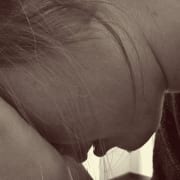Patients share experiences of Mental Health Hospitals
There is still a huge stigma around mental health hospitals. Many horror films are set within abandoned mental health hospitals, creating a common perception that they’re places of outdated, horrific treatments and people screaming in the corridors.
This isn’t reflective of reality. 30-year-old Rebecca has been admitted to a psychiatric hospital three times. The first was in June 2008, the second October 2009, and the third June 2010. All of these admissions were for anorexia.
Rebecca reported: ‘For the first admission, I had no idea that psych hospitals really existed and had no ideas of what it would be like. ‘I was very annoyed to be admitted to hospital because I wanted to carry on losing weight.
‘For the second admission I knew what I was expecting and had a definite target set before I was admitted so I knew what I needed to do.’
Rebecca was sectioned for each admission, which she says made her feel annoyed at that she’d fallen back into the situation where she’d had all control taken away from her over and over again. She said: ‘The first psych ward I was in felt a very strange experience as I had no idea what to expect. ‘We were basically left to our own devices except for meal times and 30 minute supervision after.
‘The majority of the staff were very unsympathetic and had no real understanding of eating disorders. ‘My consultant always dismissed what I said as something all people with anorexia say and I felt very much like my individual feelings and opinions were ignored. ‘I also feel this admission made my eating disorder worse as I met lots of other chronic anorexia sufferers who didn’t want to recover. ‘As this was my first admission, I was very naive to everything but I quickly learnt all the tricks and my anorexia strengthened.
‘I spent all my time in the hospital exercising in my bedroom and the staff just said they would give me more calories to compensate. ‘They didn’t try to help cure my exercise addiction. I was admitted to that first hospital for a year and when released, I instantly set about losing all the weight I had gained. ‘I went for follow up once a week for 4 weeks and then had a community nurse who I saw once every two to three weeks but she was easy to deceive and I was able to make it seem that I wasn’t losing weight.’
Rebecca says each admission has been different, as one hospital was amazing, with all caring staff who always trying to help and listen. She ended up working with one medical professional to get better, doing group therapy and keeping busy. She said: ‘It had a much more homely feel and we could have interaction with other patients on other wards whereas the first admission had been me only ever interacting with eating disorder patients.
‘I was in that second hospital for about 7 months and when discharged, I had follow up once a week for four weeks and was then left to the care of my community nurse.’ Rebecca is currently under the care of her community mental health team which she says has saved her life. She went back to university and completed her degree.
When asked whether she feels there are any misconceptions around mental health hospitals, she said: ‘I think there are bad depictions of psych wards but unfortunately, because the quality of treatment in different psych wards is so variable and my experience in that hospital at the start of my third admission (before I was sectioned) actually shows some of these negative depictions are true.
‘I think some people don’t differentiate between different mental illnesses and I think there is often a stigma that psych hospitals are just full of manically crazy people locked up. ‘This is not the case and there are a lot of ‘normal’ people in psych wards with normal lives, normal jobs and having normal conversations, it just so happens that they are also struggling with a mental illness but this doesn’t make them mad or crazy.’
21-year-old Christopher was 16 when he was admitted to a mental health hospital after experiencing auditory and visual hallucinations as well as depressive episodes. He said: ‘I was heartbroken when sectioned, although it was needed – I originally entered voluntarily although due to my mental state deteriorating and me trying to leave the unit, I was place on a section 3 which lasted about two months. ‘I was under the crisis team, and was prescribed medication to help my psychosis and depression. ‘This didn’t help and eventually I stopped taking medication. My parents became worried about this, and liaised with the crisis team to get me taken into hospital.
‘The ward I was on was lovely. While I was the only ‘child’ on an adult ward, I was on constant observations. ‘The staff were fantastic. They helped a lot with my progression and were able to get me out of my room and doing things. ‘There was a lot of routine when I was on the ward. Fixed medication and meal times, which was good as it stopped you from neglecting yourself and becoming lazy.’
Christopher was in hospital for around four months, which he says felt like an ‘age’. When he came out, he decided straight away that he wanted to become a mental health nurse. He went back home with his parents and had follow up appointments weekly with an early intervention team, who helped him get back into college, where he started to do nursing. He said: ‘I didn’t experience too much of a stigma, the hospital I was in was on the grounds of a general hospital. ‘I did feel that you would ‘stand out’ as the MH patient, although this was probably just paranoia.
‘I’ve seen stigma on social media, and in the press. This is definitely improving though.’
Hannah, 26, has been admitted to a mental health hospital three times. The first was under child and adolescent mental health services to an under 18 mental health ward when she was 12, and twice with adult services at 18 and 23.
She tells us: ‘Admissions were due to severe anxiety which developed into an eating disorder and food restriction. ‘I felt I could control my anxiety by not eating, or only eating my very small group of “safe foods”. Unlike many eating disorder admissions based on anorexia and bulimia; I was admitted with Food Avoidance Emotional Disorder and didn’t have the thoughts of being too fat or needing to excessively exercise, rather that I was too thin but my anxiety wouldn’t allow me to eat as food was ‘dangerous’.
‘My first admission was one of the most traumatic days of my 14 years living with my mental health issues. ‘My parents had told me we were going out somewhere only for them to divert to the hospital where the staff were waiting for my arrival. ‘I remember trying to jump out of the car to run away and shaming my parents for lying to me about where we were going. ‘Now that I’m older and can understand the situation, I know that my parents did it out of love and with my best interests at heart, essentially saving me from major health complications.
‘I was admitted with absolutely no understanding of my anxiety or eating disorder and felt completely out of control. At 12 it was difficult to understand what “mental health” was and it was difficult to not be in control of the decisions being made regarding treatment – being under 18, ‘My parents and medical team had control over all decisions being made. ‘I was fortunate to not be sectioned and I am grateful looking back that my parents and nurses were able to support me in understanding their decisions and agreeing to treatment, however there were other patients on the ward of similar ages under section for various mental health conditions.’
Hannah says that her admissions at 18 and 24 were a lot easier, but she was still severely unwell. At 18, she spent three weeks on a drip on a medical ward before being admitted to the mental health ward. She said: ‘Having been admitted previously, I feel this allowed me to understand what was happening and the process of what was ahead of me in terms of hospital stays and treatment plans. Not that this made the reality of physically and mentally working on that treatment plan any easier as such but at least I could identify the path ahead.
‘Being admitted to an adult mental health ward as opposed to child and adolescent was a complete eye opener. I don’t know how I imagined it would be, but it was nothing like I thought it might be. I was one of the youngest patients on the ward on both occasions and was on a ward with severely unwell patients. ‘It was scary, intimidating and overwhelming and as much as the nurses made great efforts in making me feel settled, some of my fellow patients made me feel very unsafe.
‘I had two occasions when the same patient attacked me and although the staff were very quick in reacting, I feel it highlighted the difficulties at present with limited services and facilities for varying degrees of treatment required by individuals.’
Hannah says being on a psychiatric ward was like ‘no other experience’ she will ever go through. She explained: ‘Looking back I find it equally fascinating and awful how bad it was but at the time I couldn’t find any humour to lighten the situation. ‘The child and adolescent unit I was admitted to was outdated and not fit for purpose. It was a separate building to the main hospital in which a trolley would bring breakfast, lunch and dinner to us from the canteen.
‘One room was set up as a school which all under 16 patients had to attend, there was a girls ‘dorm’ and a boys ‘dorm’ with a couple of individual bedrooms and a shared bathroom. ‘The unit did have a weekly schedule of activities and group sessions such as art therapy, occupational therapy, and psychology sessions however not all activities were available for all patients dependent on their treatment plan.



